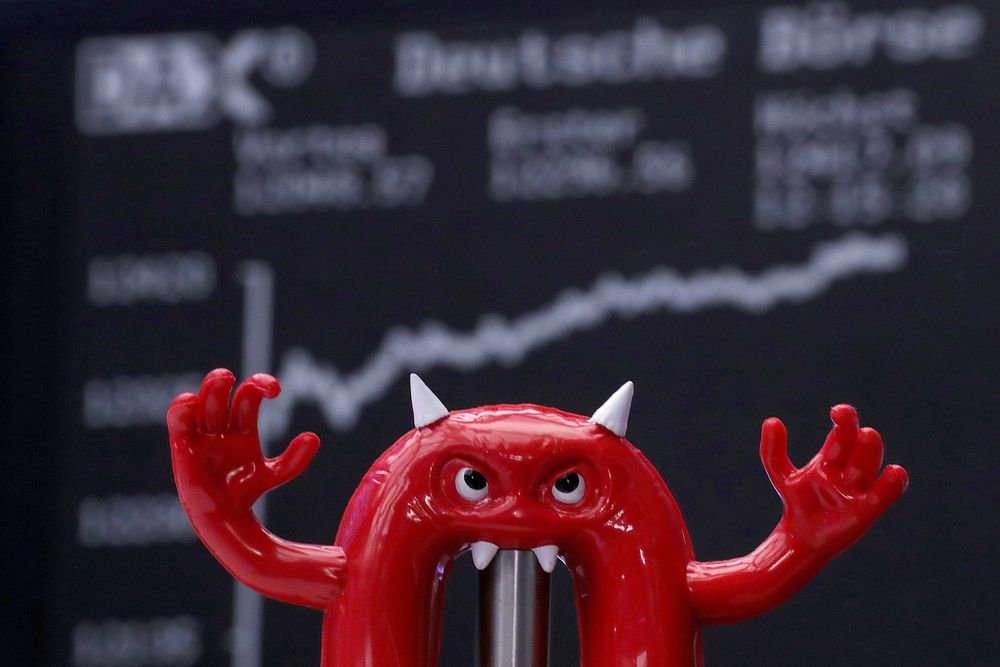RIO DE JANEIRO, BRAZIL – The euphoria of investors earlier in the year gave way to uncertainty when signs of an epidemic began to emerge in China on the eve of the Lunar New Year.
Since then, the world has changed. The coronavirus was given a name (Covid-19), spread to all continents and forced countries to close their borders, plants to shut down and millions of people to take refuge in their homes.
The economic losses caused by social isolation are still incalculable. But the financial market is already suffering trillion dollar impacts.

By last Wednesday, March 25th, the sum of the market value of the world’s stock markets totaled US$65.867 trillion, against the US$89.156 trillion recorded on January 20th, according to Bloomberg’s financial data tool.
At the start of the week, when the stock markets reached their lowest level since the advent of the novel coronavirus, losses exceeded US$25 trillion.
In the United States, where the number of infections is just over 100,000 and already exceeds the number of cases in China, the S&P 500 dropped by 35 percent between the year’s peak and the minimum. But Álvaro Frasson, BTG Pactual’s economist, still believes it is too early to say that the markets have already reached rock bottom.
In the last major financial market crisis, in 2008, the American index took two months to plunge the same 35 percent that it lost in only 33 days this year. Less than two months later, the drop had increased to 43.5 percent.
“In 2008, many companies crashed, but none remained idle for two weeks or a month. Therefore, we are experiencing a bigger black swan than at that time,” Frasson said.
As time goes by, the impacts of quarantine on the economy increase and projections of negative growth gain momentum. Kristalina Georgieva, the IMF’s managing director, said in this week’s debate that by 2020 we should have a global recession “as bad as or worse than” 12 years ago.
“I don’t think this crisis is just about the financial market. We have never seen anything like it and it is going to have a real impact on the economy,” said Gustavo Aranha, a partner and distribution director at GEO Capital. According to Aranha, the stock market losses were proportional to the magnitude of the market uncertainties. “You can’t tell what’s in the price.”
Experts interviewed were unanimous in saying that the discussion on the markets rebound depends on the quarantine period. “If the world stops for two months, the damage to the economy will be enormous. We will have unemployment like never before,” said Rodrigo Franchini, partner and director of products at Monte Bravo Investments.
The employment data from the United States, released on Thursday, March 26th, served as a preview of the impacts of the coronavirus. In just one week (ending on March 21st), unemployment benefit requests soared from 283,000 to 3.28 million.
In an attempt to save the US economy from collapse, the government and the Federal Reserve are working to inject US$6 trillion, which should be used to finance businesses and families.
Although the measure has eased some of the tension in the market, Gustavo Aranha does not see a strong short-term rebound trend. “These packages take a long time to achieve practical results. Governments will have to step into the game, but they will not end market volatility.”
In Brazil, economic expectations are not encouraging either. A few days ago, the Central Bank lowered its Gross Domestic Product (GDP) growth projection from 2.2 percent to zero. Still, the estimate was viewed as “optimistic” by many economists.
BTG’s perspective is that the Brazilian GDP will contract by 1.5 percent this year if quarantine lasts until the end of April. If it lasts until June, as requested by health experts, the GDP decline could reach four percent according to the bank’s projections.

This year, the country’s main stock index, the IBOVESPA, was one of the worst performers in the world, plunging as much as 48 percent between January and March. From late 2019 to Thursday’s close, March 26th, losses on the Brazilian stock market totaled R$1.377 trillion, according to data from the Economática financial information service.
When the effect of the coronavirus subsides, the trend is for greater risk appetite, which would benefit emerging markets. But the decision on whether or not to invest in Brazil should be based on how the country will deal with the crisis.
In addition to the political risk, which has seen growing notoriety in the market, the fiscal and monetary incentives promoted by the government and the Central Bank are also on the investors’ radar.
“We need to increase public spending to mitigate the crisis, but unlike 2008, we will have to spend what we don’t have. At the time, we had fiscal health, now we have fiscal illness,” Frasson said.

